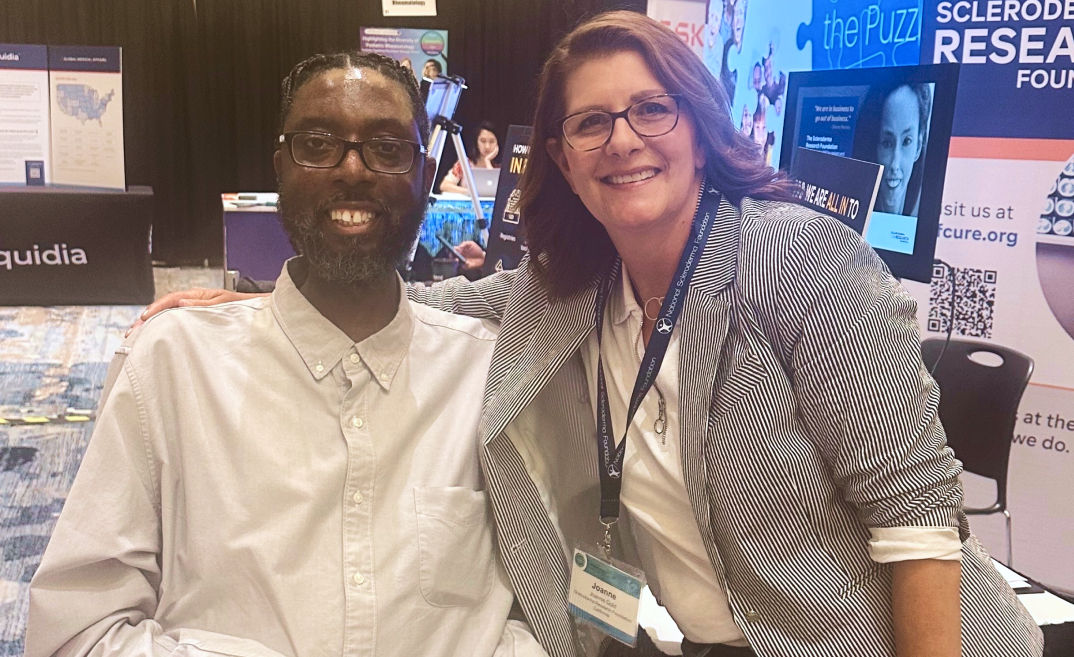
“As an athlete, you push through pain, so I didn’t think too much of it at first,” Erion M. (dx 2008) says of his initial scleroderma symptoms. In 2006, Erion was a collegiate basketball player at Southern Oregon University, when he first began noticing that something was wrong. “I was playing back-to-back games, and I started feeling more exhausted than usual,” he recalls. “My endurance dropped, and my hands began to swell.”
As time went on, his condition worsened, as he began struggling with cold intolerance and acid reflux. It wasn’t until two years later that he received his diagnosis—scleroderma. “I went to a doctor in San Francisco who finally figured it out,” he says. “They did a skin score test and told me, ‘You won’t play basketball or work probation anymore. Get ready for a life change.'”
“This was before Google was a big thing. I didn’t know what scleroderma was, and there weren’t many resources,” he says. “I felt like I was figuring it out alone.” In addition to his partnership with the SRF, Erion seeks to facilitate the community he wished he had. He currently leads support groups for BIPOC individuals and for men.
In recent years, eager to not let his diagnosis define him, Erion has embraced the challenge of exploring various adaptive sports while living with limited mobility, range of motion and dramatic weight loss. “I just wanted to feel like an athlete again and though I may not do things the conventional way, I’m always willing to try. I have tried everything—table tennis, skiing, kayaking, even equestrian,” he says with a laugh. “But you will never see me on a dancing horse. It’s just not a good look for me.”
Erion is a strong advocate for scleroderma research, as he wants others to be able to maintain their quality of life despite the challenges of the disease. “It’s terrible to see people have their bodies attacked from the inside, since it stops them from being able to do the things they once loved,” he says. “I am hopeful that more research can help prevent scleroderma from happening or progressing, and change people’s lives.”
Erion, thank you for sharing your story and for your dedication to raising awareness around this challenging disease. At the Scleroderma Research Foundation, we are equally committed to advancing research aimed at developing improved therapies and, ultimately, finding a cure for scleroderma.

